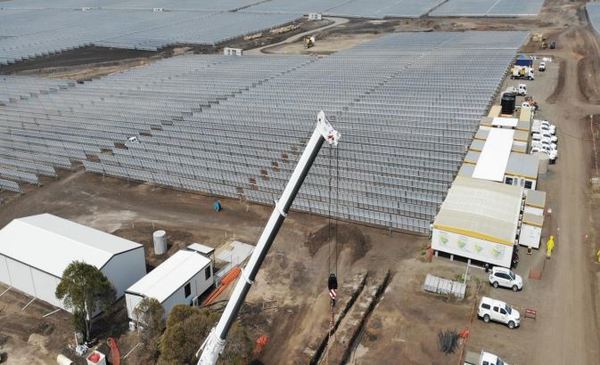By Jeremy Sollars
The University of Queensland (UQ) says it has completed connection of its Warwick Solar Farm to the Queensland electricity grid.
The connection had been expected to be complete by the end of March but UQ told the Free Times in April delays had been caused mainly attributable to COVID-19 and movement restrictions affecting travel of key staff.
The Warwick Solar Farm – at Sladevale just north of Warwick – covers 154 hectares and generated significant community opposition, with locals concerned about the loss of prime farming land and the visual impact of the facility.
A UQ spokesman last week told the Free Times the grid connection was carried out over two stages, with the first stage completed in mid-May, and the second stage on the first weekend in June.
“We’re now working with Ergon Energy and the Australian Energy Market Operator (AEMO) to gradually ramp up power output from the plant over the coming months,” the UQ spokesman said.
He said UQ plans to hold an “official opening event” in mid-July with details yet to be confirmed.
Power from the solar farm will be fed into the general Queensland electricity grid, with UQ previously stating the facility will generate sufficient equivalent power annually to off-set electricity use at its St Lucia campus in Brisbane.
Construction of solar panels on the site was completed last year after commencing in February 2019. In recent months work has progressed on other aspects of the project including a visitor centre which UQ says when completed will be open to the public.
Other recent activities on the site have included installation and testing of switching equipment along with construction of 3.5km of overhead lines to the nearby Ergon Warwick substation.
As revealed by the Free Times in 2019 discussions between the former Dobie council administration and UQ over the solar farm took place in advance of the final council vote to approve the project.
Emails obtained by the Free Times through Right To Information also showed senior council officers pressured counterparts in state departments to speed up their approvals processes.







